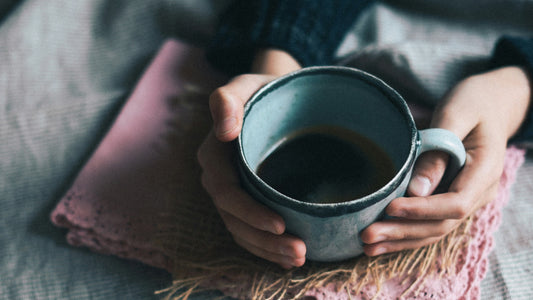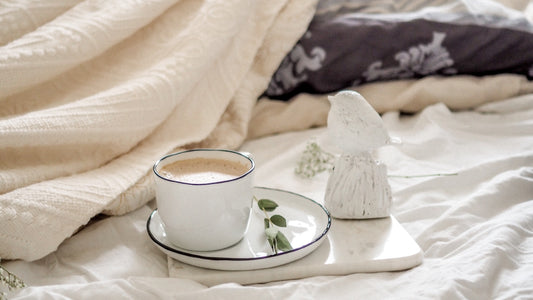Insomnia, a sleep disorder that millions of people worldwide grapple with, has numerous potential causes. Among them, the influence of caffeine stands out due to its widespread consumption. In this article, we'll delve deep into the relationship between caffeine and insomnia, providing insights and actionable takeaways for both regular coffee lovers and insomniacs.
Understanding Insomnia
Before we delve into caffeine's role, let's first understand insomnia:
What is Insomnia?
Insomnia refers to persistent difficulties in falling asleep, staying asleep, or waking up too early and not being able to go back to sleep. There are two primary types:
- Acute insomnia: A brief episode often triggered by stressful events, such as receiving upsetting news, facing a job interview, or traveling across time zones. Typically, it resolves without any treatment.
- Chronic insomnia: Sleep disturbances occurring at least three nights a week and persisting for at least three months. This form can have multiple causes and may also be linked to another medical or psychological issue.
Causes of Insomnia:
Factors include:
- Stress
- Environmental changes
- Medications
- Other health disorders
Caffeine: The Stimulant We Love
Caffeine is the world's most widely consumed central nervous system stimulant. Found in coffee, tea, energy drinks, and even chocolate, it helps wake us up, keeps us alert, and improves concentration.
How Does Caffeine Work?
When ingested, caffeine blocks adenosine, a neurotransmitter responsible for sleep regulation. As caffeine consumption increases, so does the brain's alertness, pushing back the sensation of tiredness.
The Core Relationship: Caffeine and Insomnia
Now, let's delve into how caffeine impacts those with insomnia.
1. Caffeine's Impact on Sleep Quality and Quantity While caffeine might help people stay awake during the day, it can come back to haunt them at night. Several studies have shown that:
- Consuming caffeine can delay the timing of your body clock. This reduction in sleep duration can lead to sleep deprivation.
- Decreased deep sleep: The more caffeine people consume, the less deep sleep they tend to get, which is essential for memory consolidation and physical restoration.
2. Caffeine Sensitivity and Genetics Everyone metabolizes caffeine differently, thanks to genetics. Some people can have a cup of coffee after dinner and sleep soundly, while others will toss and turn all night. Fast metabolizers clear caffeine from their system quickly, while slow metabolizers take longer, leading to prolonged effects, including insomnia.
3. Psychological and Physiological Effects For insomniacs, even a small amount of caffeine can induce anxiety. Anxiety can exacerbate sleep disorders, creating a vicious cycle of increased caffeine consumption to combat daytime sleepiness and reduced nighttime sleep quality.
Recommendations for Insomniacs
If you suffer from insomnia, consider these caffeine-related recommendations:
1. Monitor Your Caffeine Intake Be aware of the amount of caffeine you're ingesting daily, considering all sources like medications, chocolates, and sodas.
2. Set a Caffeine Curfew Avoid caffeine in the evening. Since its effects can last for hours, it's wise to set a personal caffeine curfew, preferably no later than early afternoon.
3. Experiment and Observe Everyone's tolerance is different. Experiment with reducing your intake and note any changes in your sleep patterns.
4. Opt for Decaf If you love the ritual of a warm beverage in the evening, opt for decaffeinated versions.
The Silver Lining: Potential Benefits of Caffeine for Sleep Disorders
Interestingly, while caffeine is a known sleep disruptor, it's also used therapeutically for certain sleep disorders like narcolepsy and sleep-related migraines.
Remember, balance is key. If you love caffeine, it doesn't mean you have to cut it out entirely. By understanding its effects on sleep and adjusting your intake accordingly, you can enjoy your favorite caffeinated beverages without sacrificing a good night's rest.
Conclusion
For insomniacs, understanding the relationship between caffeine and sleep is crucial. By staying informed and making small adjustments, one can balance the love for caffeine without compromising on sleep. After all, a good night's sleep is irreplaceable, and understanding the impact of our daily habits is the first step toward achieving it.




